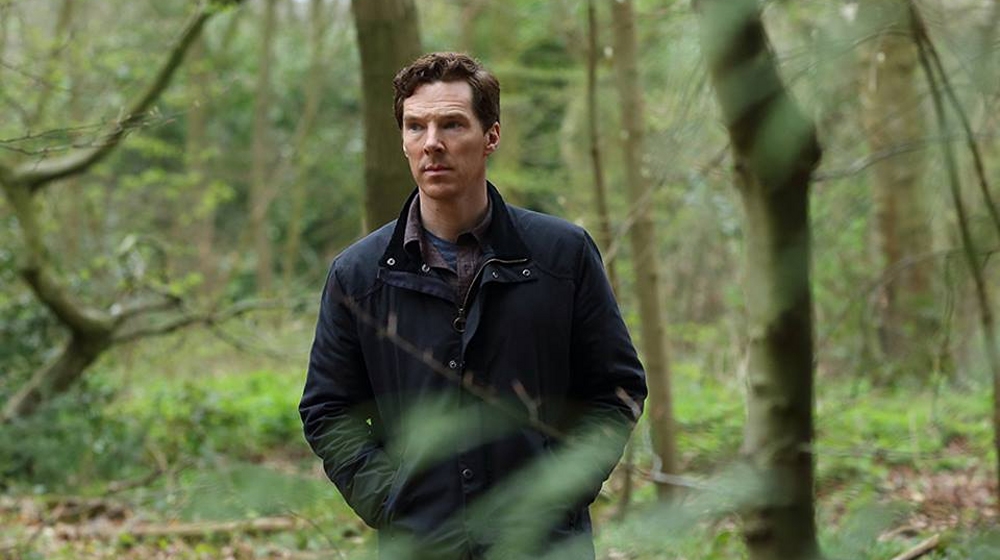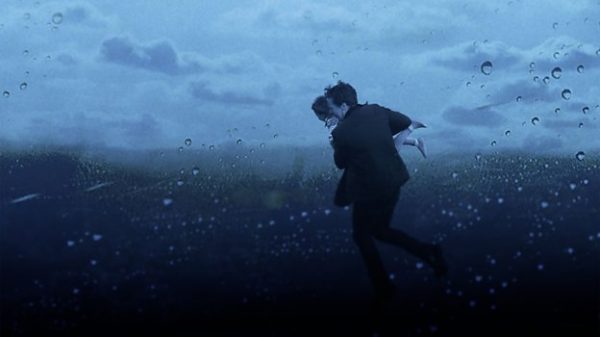Ian McEwan’s The Child in Time is an aggressively challenging book to adapt. Not only does it deal with some heavy subject matter, but time and space are manipulated throughout the novel with the reader reliant on protagonist Stephen’s point of view to follow the many angles of the narrative. This one-off BBC drama – directed by Julian Farino and adapted by Stephen Butchard – then, had a significant job to do.
When author Stephen Lewis (Benedict Cumberbatch) loses his daughter on a normal day at the supermarket, his life is completely transformed. Battered by uncertainty and grief, Stephen’s wife Julie (Kelly Macdonald) moves to a remote cottage to escape reminders of their old life, and Stephen must deal with the sudden breakdown of his best friend all while he continues to hope for Kate’s return.
In terms of screen adaptations of McEwan’s work, the majority of the audience will be most familiar with Atonement starring Keira Knightley and James McAvoy, which was far more naturally cinematic and – to a point – straightforward than The Child in Time. Rather than a single rug pull, this story deals with its more complex subject matter in pretty much every scene and exchange.
The beginning of the film hinges on how well it portrays the inciting incident, and it’s as sudden and terrifying as it’s always been. One minute Kate is playing while her father pays for their shopping and the next it’s as if she was never there at all. She continues in the story merely as a spectre hanging over them, her presence felt but never again truly seen or heard.
Cumberbatch has never been better than he is here, managing to believably inhabit Steven as the ‘everyman’ when he’s made a career out of portraying aloof eccentrics. It’s immediately clear why the actor/producer wanted to tackle the material, as it exposes his talents to the mainstream in a way that hasn’t really happened since his rise to fame. It’s also a great story.
Kelly Macdonald perfectly captures the other side of the couple’s struggle, as she tries in vain to create a new chapter of her life. The way they both slip back into their old routines when they see each other after almost a year is perfectly judged, and feels almost intrusive to watch at times. It’s a marriage cracked but not totally broken, which is a quieter side to a marriage breakdown we don’t get to see a lot.
The book’s lengthy political meetings about the future of childcare are smartly cut down to a bare minimum, and we’re left only with the scenes that potentially impact our feelings about Steven, Charles (Stephen Campbell Moore) or the larger themes going on. Chief among those is the loss of childhood, with one speaker arguing that parenting has become something to be outsourced, and family life eroded.
This pronouncement obviously impacts Steven as he, just three years after Kate disappeared, continues to leave his grief and psychological wounds open to the elements. If he were to begin properly healing then Kate would be gone forever, he feels. She must be kept as alive as possible in their lives.

A Child in Time is a brutal watch for parents and probably impossible for anyone who’s actually lost a child. Steven is shown as a barely functioning man following the loss of his daughter, and the sequence in which he mistakes another child for Kate at the school gates is absolutely savage.
Meanwhile, as Charles and his wife also move away, something peculiar begins to happen to Stephen’s friend. At first it seems like he is simply embracing the country lifestyle after so many years in the city, but it soon becomes something more sinister. I’m reluctant to say more here in case there are people reading who have not yet watched. Let’s just say that things get dark, and it’s this thread that provides the emotional climax of the story.
Childlike optimism is ours to lose, the film says, and we must be careful not to abandon it. Like the shrine in Stephen’s home, Kate is frozen in time, and so are her parents for much of the running time. Overall, what The Child is Time seems most concerned with is the innocence and experience of the before and after – whether that’s from a traumatic event, or simply growing older.
Only when we confront what is holding us back can be reconcile those two sides of ourselves. As Stephen eventually realises, loving Kate is different than missing her.

